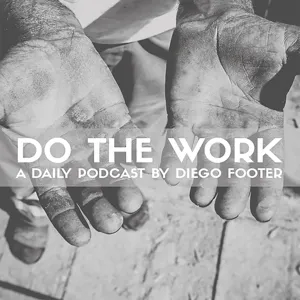Podcast Summary
The Potential of Hydrogen Fuel Cells in Revolutionizing Aviation: Hydrogen fuel cells have the potential to make air travel sustainable by replacing jet fuel, but challenges such as high production costs and plane retirement need to be overcome for a greener aviation future.
Electricity has the potential to revolutionize the transportation sector and combat climate change. While cars, trucks, trains, and ships can be electrified, airplanes pose a challenge due to the weight of batteries. However, hydrogen fuel cells could be the solution. When burned, hydrogen is emissions-free and lightweight, making it suitable for powering commercial aircraft. Although hydrogen production is currently expensive, companies like Universal Hydrogen are working to decarbonize the entire aviation industry. By replacing jet fuel with hydrogen fuel cells, they aim to make air travel sustainable. This innovation requires the retirement of existing planes and the development of new ones. Despite these challenges, there is hope for a greener future in aviation.
From Aviation Enthusiast to Aerospace Leader: Paul Eremenko's Passion and Drive in Shaping the Industry: Paul Eremenko's career journey demonstrates the significance of following one's passion and seizing opportunities to create a meaningful impact in the chosen industry.
Paul Eremenko's career has been shaped by his passion for aviation and his desire to understand the decision-making processes in the industry. From his early days of learning how to fly in a small airport in West Lafayette, to his work at DARPA and his focus on national security law, Eremenko's journey has been driven by a curiosity about aerospace products and their acquisition. His interest in electric propulsion for airplanes also led him to launch a program for experimental aircraft. Ultimately, Eremenko's expertise and dedication to the aerospace field led him to become the CTO of Airbus and later join the United Technologies Corporation. His story highlights the importance of pursuing one's passion and seeking opportunities to make a significant impact in one's chosen industry.
The Challenge of Carbon Emissions in Aviation: Hydrogen fuel production through electrolysis offers a viable solution for reducing emissions in the aviation industry, which is crucial in achieving the zero-emissions target set by the Paris Agreement.
The aviation industry faces a significant challenge when it comes to carbon emissions and pollution. The Paris Agreement, which aims for zero emissions by 2050, has put pressure on the industry to address this issue. While aviation contributes a relatively small fraction of global emissions, it produces more carbon emissions than the country of Germany every year. Unlike other sectors, such as cars, there are limited alternatives for decarbonizing aviation, as battery technology doesn't scale for large aircraft. However, hydrogen has shown promise as an ideal aviation fuel due to its high energy content. Producing clean hydrogen through electrolysis offers a viable solution for reducing emissions in the industry.
Revolutionizing Hydrogen Transportation for Aviation Decarbonization: Universal Hydrogen's modular capsules offer a cost-effective solution to transport hydrogen directly to airplanes, eliminating fueling operations and addressing the logistical challenges in the aviation industry.
The production of green hydrogen is becoming more affordable due to the increased availability of renewable electricity globally. The Paris Agreement has played a significant role in driving the exponential decrease in the cost of green hydrogen over the past years. However, the aviation industry faces challenges in transporting hydrogen from production points to airplanes, as it requires expensive infrastructure. Universal Hydrogen, founded by Paul Aremenko, aims to address this pain point by transforming hydrogen into cargo and utilizing existing cargo handling infrastructure at airports. By using modular capsules to transport hydrogen and directly delivering them to airplanes, the company eliminates the need for fueling operations and focuses on solving hydrogen logistics and distribution problems. This innovative approach could be the missing link in the hydrogen value chain for aviation decarbonization.
Transitioning to Hydrogen-Powered Aircraft: A Feasible Path for the Future: Hydrogen-powered aircraft offer a viable solution for reducing aviation emissions, with the ATR 72 being targeted as the first hydrogen-powered plane. Unlike battery-powered planes, hydrogen-powered planes can make use of existing aircraft configurations.
The transition to hydrogen-powered aircraft in the commercial aviation industry is more feasible and likely to happen in the near future compared to battery-powered electric aircraft. The use of hydrogen fuel provides a viable solution for reducing aviation emissions, especially in the regional and narrow-body aircraft segments which contribute the most to emissions. The ATR 72, a regional turboprop plane, is being targeted as the first hydrogen-powered aircraft to enter service. Unlike battery-powered planes, hydrogen-powered planes do not face the challenge of limited energy density and weight constraints. With some modifications to accommodate hydrogen, existing aircraft configurations can be utilized, making the transition more practical and less disruptive.
The Future of Transportation: From Batteries to Hydrogen Fuel Cells: Hydrogen fuel cells offer a potential solution for electric air taxis, providing longer ranges and efficiency. Overcoming infrastructure and cost challenges can pave the way to a greener aviation industry.
The future of transportation can be electric but not necessarily battery-powered. While the first generation of electric air taxis may rely on lithium-ion batteries, the second generation could be powered by hydrogen fuel cells. This means that instead of using hundreds of batteries, hydrogen-powered electric planes can constantly replenish the existing battery by refueling hydrogen. Just like hydrogen-powered cars, these planes would be more efficient and have longer ranges. However, there are challenges to overcome, such as the lack of infrastructure and high costs associated with hydrogen fuel. Efforts are being made to solve these issues and act as intermediaries between hydrogen producers and airlines, paving the way for a greener future in aviation.
Expanding the Potential of Hydrogen as a Fuel Source: Universal Hydrogen aims to tap into various industries beyond aviation, such as heavy-duty trucks and industrial equipment, by working with green hydrogen producers and showcasing the benefits of zero emissions and improved economics.
The demand for hydrogen is not limited to aviation or cars. There is a lot of potential in heavy-duty trucks, port equipment, industrial equipment, and steel production. Universal Hydrogen works closely with leading green hydrogen producers to match customer demand to the production footprint. They also actively seek out areas with abundant hydrogen but no clear airline customer and present the benefits of zero emissions and better economics, gaining positive responses from airlines. The company plans to start retrofitting ATR planes with hydrogen kits in 2025, with a rapid ramp-up and the goal of converting at least half of the fleet by the early 2030s. For larger planes, a clean sheet airplane design is necessary, allowing for thinner, lighter wings and longer fuselages to accommodate hydrogen. This highlights the multifaceted nature of Universal Hydrogen's work as a fuel, logistics, and manufacturing company.
Transitioning to Hydrogen-Powered Engines: A Sustainable Solution for the Aviation Industry: The aviation industry, including major players like Airbus and Boeing, must invest in hydrogen-burning engines to meet emissions targets, showcasing hope for a future where hydrogen becomes the primary fuel source for airplanes.
The aviation industry, particularly Airbus and Boeing, will need to switch to hydrogen-powered engines in order to meet emissions targets set by the Paris Agreement. The world is facing a crisis with increasing environmental concerns, so it will be impossible for these companies to continue producing airplanes that burn hydrocarbons. Fortunately, there is a willingness from stakeholders like Airbus, Boeing, and GE to invest in the development of hydrogen-burning engines. This positive relationship between the industry and alternative fuel companies like Universal Hydrogen shows that there is hope for a future where hydrogen becomes the primary fuel source for airplanes. While the transition will be costly and require government subsidies, it is essential for the industry's long-term sustainability and to meet global environmental goals. Additionally, for larger aircraft, such as the A380 or 787, the adoption of hydrogen may require a different airplane configuration or storage method due to the higher volume needed.
Challenges and Collaboration in Transitioning to Hydrogen-Powered Planes: Transitioning to hydrogen-powered planes requires significant changes in design, collaboration between experts and regulators, and careful consideration of safety regulations and industry standards.
In short, one big takeaway from the discussion is that the transition to hydrogen-powered planes will require significant changes in aircraft design and the industry as a whole. Storing hydrogen in the form of ammonia could address the volume issue, but it would still require major modifications to airplane structures. The process of obtaining FAA certification for hydrogen-powered planes is crucial, and strong collaboration between industry experts and regulatory bodies is essential for success. While some jurisdictions may consider implementing regulations to promote hydrogen-powered planes, it is not a common practice in the aviation industry. Climate change is already impacting air travel, presenting challenges such as weather-related delays and turbulence. Overall, the adoption of hydrogen power in aviation is seen as crucial in addressing the industry's role in climate change but will require significant adjustments and collaboration.
Urgent Need to Decarbonize Aviation Industry: Transitioning to hydrogen-powered planes can provide a credible decarbonization roadmap for the aviation industry, offering affordable and environmentally friendly travel options within the next decade.
The aviation industry recognizes the urgent need to decarbonize in order to combat climate change. Currently, aviation contributes only a few percent to global CO2 emissions, but if no action is taken, it will soon become a major problem. Paul Eremenko emphasizes that aviation cannot continue to rely on hydrocarbon fuels and calls for a credible decarbonization roadmap. If not, traffic volumes may need to be reduced, which would be detrimental for both the industry and humankind. Private air travel has also been identified as a contributor to carbon emissions, but rather than banning it, Eremenko suggests transitioning to hydrogen-powered planes. Looking at the success of electric vehicles, it may be possible to see hydrogen-powered planes within the next decade, offering affordable and environmentally friendly travel options.






